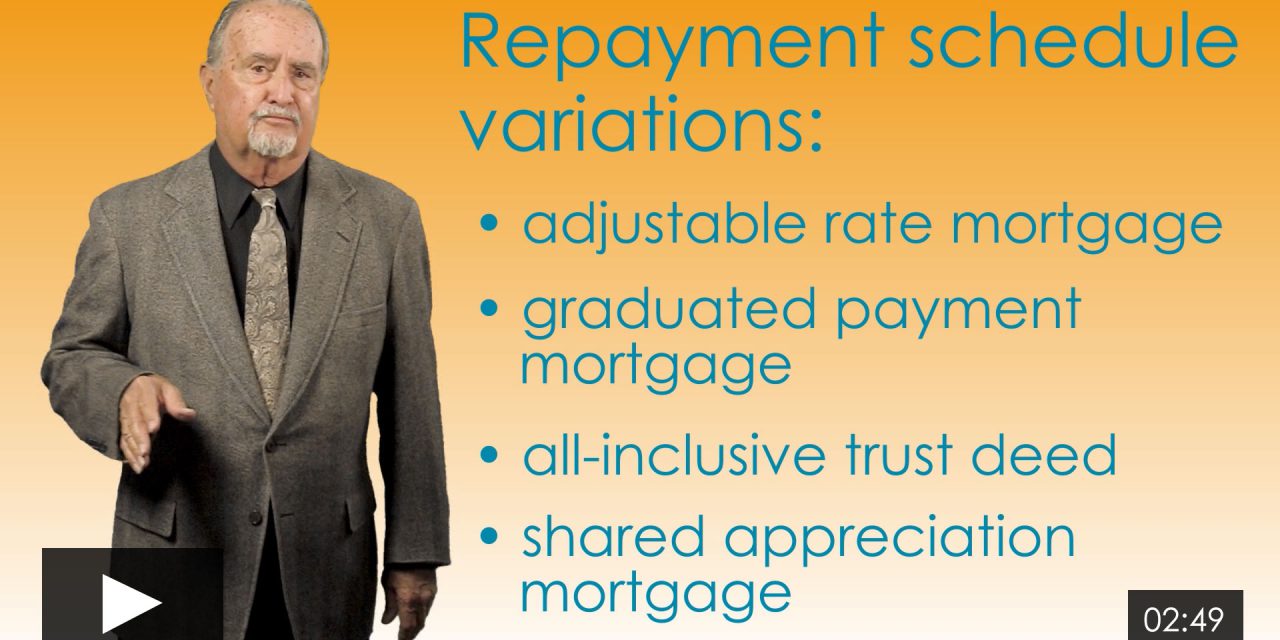Interest rate and repayment schedule variations
While the installment note and the straight note are common, variations on the interest rate and repayment schedules contained in the installment and straight notes are available to meet the specific needs of the lender and borrower.
The variations include the:
- adjustable rate mortgage (ARM);
- graduated payment mortgage (GPM);
- all-inclusive trust deed (AITD); and
- shared appreciation mortgage (SAM).
The ARM, as opposed to a fixed rate mortgage (FRM), calls for periodic adjustments to the interest rate. Thus, the amount of scheduled payments fluctuates from time to time. The interest rate varies based on movement in an agreed-to index, such as Cost-of-Funds index for the 11th District Federal Home Loan Bank.
The ARM provides the lender with periodic increases in its yield on the principal balance during periods of rising and high short-term interest rates.
When an upward interest adjustment occurs, the note’s repayment schedule calls for an increase in the monthly payment to maintain the original amortization period. If the amount of the original monthly payment is retained without an increase to reflect an increase in the interest rate, the mortgage term is extended or negative amortization occurs.
ARMs typically feature an introductory interest rate that is applicable for a short period of time, say several months. This is known as a teaser rate or qualifying rate.
ARMs become popular when property prices or the interest rate on FRMs faster than the rise in personal incomes. Further, ARMs allow borrowers to leverage the lower initial interest rate charged into a higher mortgage amount to fund the purchase of a home. In turn, borrowers are able to pay a higher price for a home. However, they take on the very real risk the payments will increase over the coming years.















